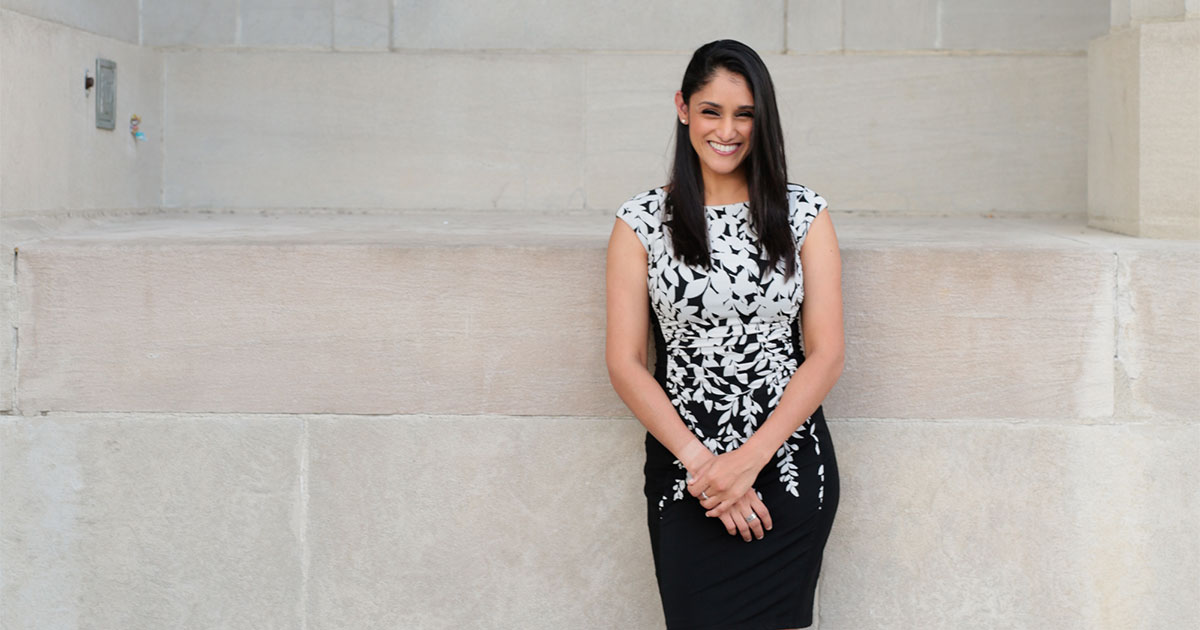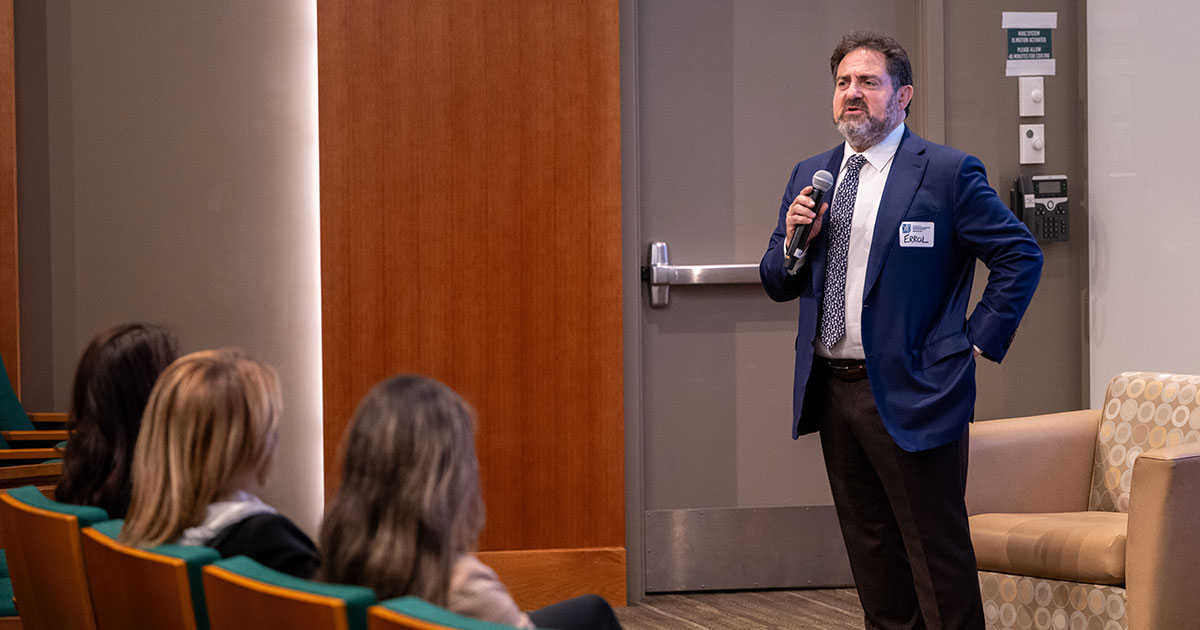When Your Career Ends at 23: From the Olympics to Babson

Despite all that happened, despite all the uncertainty and challenges from her career in tennis, Sunitha Rao ’14 still looks back fondly on the Olympics.
The year was 2008, and the site was Beijing. Rao was competing for India. “It was amazing,” Rao says. “It was one of the best experiences of my life.”
Rao remembers the sea of people when she walked into the stadium during the opening ceremony, and she remembers the excitement of the Olympic village, surrounded by athletes who had trained years to be there and now were chasing their dreams. “To be around that energy,” she says, “it felt incredible.”
The joys of that moment didn’t last. One year later—tired, worn out, and nearly broke—Rao quit the sport. She had turned professional at the age of 14, and tennis had been her life. But then, at the age of 23, it was over.
“All of a sudden, I had nothing,” she says. “All my days had been eating, sleeping, and training. All of a sudden, I didn’t have a purpose. It was one of the hardest times of my life.”

Sunitha Rao ’14 competed at the 2008 Olympics in Beijing.
In this two-part series, we look at the life and career of Sunitha Rao, who was pushed into tennis at a young age and then found herself having to start over in her early 20s, a daunting prospect given that she had dropped out of school after the sixth grade and was unsure of what direction her life should take.
Rao’s story takes her from a tough upbringing in New Jersey to tennis courts around the world, from the entrepreneurial campus of Babson College to her eventual rebirth as a real estate investor in Indianapolis.
As Rao works to create a life for herself, her journey is ultimately one of empowerment. In her experiences, both on and off the court, she is driven to seek independence, to never be too reliant on any person or situation for her financial well-being.
“I have seen what it’s like when a woman puts all her eggs in one basket,” she says. “I never want to be dependent on one thing. Financial independence is important to me because it represents options.”
The Story Begins
Rao’s story begins in Jersey City, New Jersey. That’s where she was raised, in a rough neighborhood by two immigrant parents from India, and that’s where she first witnessed why financial independence matters.
“I grew up in an extremely violent household,” says Rao, who bluntly describes her father as abusive and domineering. For her mother, her brother, and herself, there was no easy way out, because her father controlled the family’s finances.
“My mom couldn’t do anything else because of that,” Rao says. “She couldn’t bring herself or her children to a safer situation. And my father knew it. He knew she had zero options.”
“I have seen what it’s like when a woman puts all her eggs in one basket. I never want to be dependent on one thing. Financial independence is important to me because it represents options.”
Sunitha Rao ’14
Rao’s father pushed her into tennis. She spent hours practicing, so much so that her training eventually began to interfere with her schooling. She dropped out after the sixth grade. “My father wanted a tennis player before I was even born,” she says. “I wasn’t given a choice to play the sport.”
Rao’s feelings about tennis are complicated, being wrapped up with memories of her difficult father. But tennis gave her an identity, and it taught her crucial intangibles, namely resiliency and long-term thinking, which would serve her well in the years to come. “You plan for x, y, and z, and don’t let anything get in the way,” she says.
Ultimately, Rao would wrestle herself free from her father, taking control of her tennis career and breaking off contact with him when she was 19. Today, he is no longer in her life.
Walking Away
For Rao, being a professional tennis player made for a challenging and worrisome life, far removed from the lucrative and glamorous jet-setting pursuit it might appear to be on the outside.

When Sunitha Rao ’14 stepped away from tennis, she wasn’t sure what the future held, but she knew that she somehow wanted to attain financial independence.
Rao didn’t consistently compete at the highest echelons of the sport, with the likes of Serena and Venus Williams and other top players, so money concerns were a constant. Once in a while she might have a large payday, say $15,000 or $20,000, but many weeks her earnings were only a couple of hundred dollars or so. “I didn’t know how much money was coming in every week,” she says. “That was a very stressful situation for me.”
Tennis tournaments take place all over the world, and from her inconsistent earnings, Rao had to pay for travel. She also paid for coaches when she could. “I didn’t have a consistent coach,” she says. “I didn’t have the resources.”
Traveling and competing took a lot out of her. “How long can I struggle through this?” she wondered. “I was putting my body through a lot. It was starting to break down. I was very tired and very burned out.”
And so, at 23, she walked away. What the future held was unclear. She didn’t have much money saved, and her lack of education was an immediate concern. “I hadn’t had Algebra II. It was utterly absurd,” she says. “I struggled to construct a sentence properly.”
To find the stability and financial independence she craved in her life after leaving tennis, Rao would need to address that lack of education. To do so, she would soon come to Babson College.




